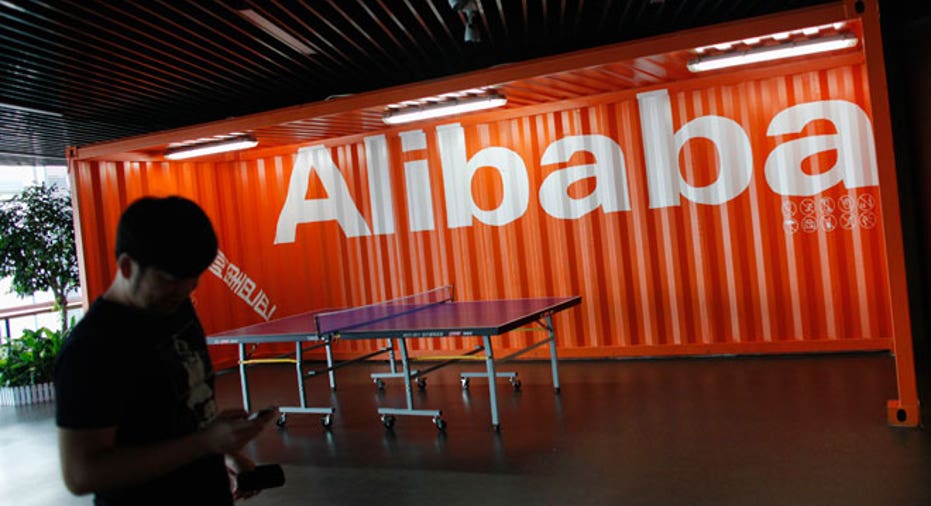Why Alibaba’s IPO is More Important than Facebook’s

Alibaba – the world’s largest online and mobile commerce company – filed this week for what will clearly be a mammoth IPO. But that’s not why you should drop what you’re doing and pay close attention to the company that accounts for about two-thirds of all parcels delivered in China.
The reason why every executive, business leader, and management expert should study Alibaba is because they’re probably looking at the most innovative business model and leadership culture to come along in a very long time.
Yes, I know how hyperbolic that sounds. Believe me, I know. But I’ve been at this game for a very long time, and what we’re seeing here isn’t just the public launch of a technology behemoth, but the coming of age of an entirely new type of company.
Alibaba has been described as a mashup of Amazon (NASDAQ:AMZN), eBay (NASDAQ:EBAY), Google (NASDAQ:GOOG), and PayPal because its unique business model incorporates key aspects of each of those companies. But the culture founder Jack Ma built is just as unique. To me, it’s reminiscent of a couple of tech companies that broke the mold: Apple (NASDAQ:AAPL) and Google.
A business model that generates stratospheric profits
Like a combination of Amazon and eBay, Alibaba’s business is comprised primarily of two online marketplaces, but that’s where the similarity ends. The Chinese company doesn’t actually make, inventory, or sell any merchandise. Instead it acts solely as a middleman collecting fees and commissions from large merchants and advertising fees from small businesses and consumers that want to stand out.
That highly leveraged model enables Alibaba to generate what I can only characterize as spectacular profits. Although a whopping $248 billion in merchandise traded on its sites last year, Alibaba’s net profit margins – net, not gross – are an incredible 45%. That’s right, the company earned $2.9 billion on revenues of $6.5 billion for the last 9 months of 2013.
Even at a scale that’s more than twice the size of Amazon and about half that of Walmart (NYSE:WMT) – the world’s largest retailer – in terms of merchandise sold, Alibaba’s net profit margins are much higher than America’s highest performing technology companies: Microsoft, Apple, and Google. And that holds true of EBITDA, as well.
A novel leadership culture aligned for long-term success
While modern technology companies like Google and Facebook (NASDAQ:FB) have concentrated voting power and decision-making with a handful of executives via dual-class ownership structures, Alibaba went in the opposite direction. When the company was founded in Jack Ma’s apartment in 1999, it was formed as a partnership to drive collaboration and diminish bureaucracy and hierarchy.
Today, that dynamic partnership consists of 28 members – 22 from the company’s management team and six from affiliate companies – that are chartered to embody and evangelize the company’s mission, vision, values, and innovative culture.
Perhaps more importantly, the Alibaba Partnership is responsible for nominating a majority of the members of the company’s board of directors, subject to ratification by shareholders. And each partner gets just one vote, including Ma, who is now executive chairman, executive vice-chairman Joe Tsai, and CEO Jonathan Lu.
True to this partnership structure, Alibaba does not compartmentalize profit and loss or revenue targets by division. Rather, its business units and executives are aligned to and accountable for the long-term health and profit growth of the entire company, its marketplaces, and its ecosystem.
Given all the talk about diversity, inclusion, collectivism, and transparency among American high-tech companies, its ironic that a China-based behemoth with 25,000 employees has more of an entrepreneurial culture than most Silicon Valley startups.
A new age of Asian entrepreneurs
In many important ways, Jack Ma is a lot like Softbank founder and CEO Masayoshi Son. Son invested the first $20 million in Ma’s new venture back in 2000. He currently sits on Alibaba’s board and Softbank is the ecommerce giant’s biggest shareholder with a 37% stake in the company.
Both men come from humble beginnings. Ma grew up, went to school, and became an English teacher in Hangzhou, China. Son was born to a poor Korean family that immigrated to Japan.
Perhaps because of their roots and the adversity they faced early in life, Ma and Son are both known as aggressive, controversial risk-takers who will stop at nothing to bring their visions to fruition.
Son, now one of the richest men in Japan, plans to upend the U.S. wireless market through Softbank’s recent takeover of U.S.-based Sprint. Ma seems to have his hands full dominating China’s ecommerce market, but I’m sure Amazon’s Jeff Bezos and every other tech CEO will keep a close eye on Alibaba’s IPO and its strategic investments.
With Alibaba’s IPO valuation rumored to be as high as $200 billion, that would already make it one of the world’s most highly valued technology companies. But given its unique business model and operating structure, I think that’s just the beginning for a new type of company that we will all be watching ... and possibly emulating.



















